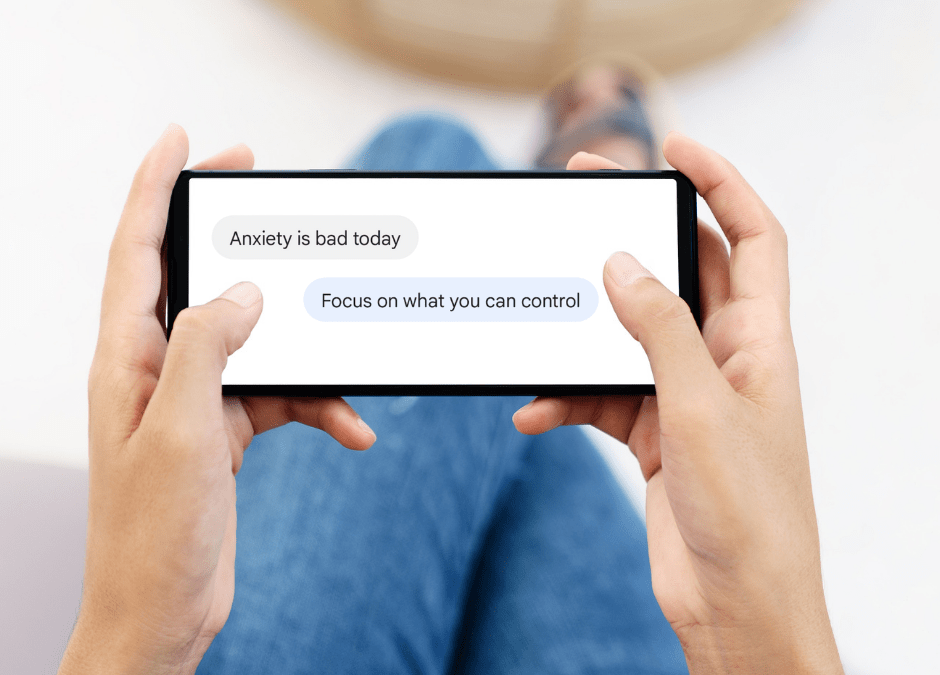
Simple Tips for Finding More Mindful Moments
In the midst of our busy lives, it’s often the smallest interactions that can ground us in the present and remind us of the beauty around us. I walked into a gas station recently, lost in my thoughts. Likely, I was mentally preparing for an upcoming meeting, running the day’s schedule through my mind, or brainstorming resolutions for challenges of my clients, my children, or myself. As I was checking out, the young cashier said, “I like your ring.”
“Thank you” I responded, half-aware. But her comment took me out of my thoughts and back to the present. I looked at her, actually noticed her, and realized she had a very cute hair style with pigtails and color that I could tell took some effort. I continued, “I like your hair.”
“Thank you!” she said. Then, “A nice compliment can go a long way.”
“Yes it can” I replied. In that moment, she not only gave me a reason to smile but brought me back to the present, to be mindful of that exact moment. I left a little lighter and happier. I have been working to be more mindful, more “in the moment,” because I understand how important it is for a happier, healthier life.
Simple Mindfulness Tips
If you often find yourself lost in thought, with lack of focus, or not able to enjoy the small moments, the practice of mindfulness may help. Mindfulness encourages us to reconnect with the present, enhancing our awareness of our surroundings and ourselves. By incorporating simple techniques into our daily routines, we can develop a greater sense of peace and appreciation for the little things in life. Here are some practical tips to get you started on your mindfulness journey:
1. Brain Dump: Clear your mind by doing a brain dump of everything that is distracting you. Choose a quiet space, set a timer for 10-15 minutes and write freely. Don’t worry about grammar, structure, or coherence—just let your thoughts flow. This can include worries, to-do lists, or random ideas.
After the timer goes off, take a moment to review what you wrote. Notice any recurring themes or feelings. This reflection can help you understand what’s on your mind and identify any areas where you might need to focus your attention. Then, make a plan to address them. Creating a habit of clearing your mind with a brain dump can be a powerful way to release mental clutter and create space for mindfulness in your day.
2. Practice: Being intentional and grounded consistently takes practice. One popular grounding method is the 5-4-3-2-1 Technique: Identify 5 things you can see, 4 things you can touch, 3 things you can hear, 2 things you can smell, and 1 thing you can taste. Other methods such as spending a few minutes outdoors, movement and stretching, or mindful breathing may work for you. Techniques such as this can bring you back to the present moment, allowing you to be more focused and mindful of your thoughts and decisions.
3. Reflect: Practice regular reflection and gratitude. One way to do this is to create a daily gratitude journal. Dedicate a few minutes each day, perhaps in the morning or before bed, to reflect on your day. List three things you are grateful for. They can be big or small—anything from a successful project at work to a beautiful sunset.
For each thing you list, take a moment to reflect on why you are grateful for it. Consider how it made you feel, why it matters to you, and the impact it had on your day. This practice not only enhances mindfulness by bringing your focus to the positive aspects of your life but also encourages a deeper understanding of what truly matters to you. Over time, it can help shift your perspective and cultivate a more positive mindset.
Thank you to my cashier that day, for bringing me out of my thoughts and back to the moment I was in. I needed a reminder to stop rushing, thinking, worrying, solving, planning…to notice and enjoy what was around me. Yes, I nice compliment can go a long way.


Recent Comments